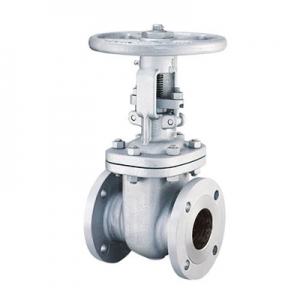Refrigerated centrifuges play a crucial role in various scientific and therapeutic applications, including biological sample separation and chemical purification. However, traditional centrifuge systems often require regular maintenance to ensure optimal performance, leading to downtime and increased operational costs. Recent technological advancements have paved the way for maintenance-free solutions, revolutionizing the field of centrifugation. This article explores the innovations driving maintenance-free technologies in refrigerated centrifuges and their implications for research, healthcare, and industrial processes.

The Rise of Maintenance-Free Technologies in Refrigerated Centrifuges
Historically, refrigerated centrifuges relied on complex mechanical components prone to wear and tear, necessitating frequent maintenance and part replacements. With the advent of maintenance-free technology, refrigerated centrifuge manufacturers are now focusing on creating systems that are more reliable and durable.
Key Innovations Driving Maintenance-Free Technologies
1. Introduction of Brushless Motors
A significant advancement in maintenance-free centrifuge technology is the widespread use of brushless motors. Unlike brushed motors, brushless motors offer higher efficiency, lower maintenance requirements, and longer lifespans. By eliminating brushes and commutators, brushless motors experience less wear and tear, resulting in fewer maintenance intervals and increased reliability. Additionally, they produce less heat and vibration, contributing to smoother operation and improved sample integrity.
2. Integration of Direct-Drive Systems
Traditional centrifuges often use belt-driven systems to transfer power from the motor to the rotor assembly. Belt-driven mechanisms are susceptible to slippage, tension issues, and belt degradation, requiring frequent maintenance and replacement. Maintenance-free centrifuges address these problems by incorporating direct-drive systems, which provide a direct mechanical connection between the motor and the rotor, eliminating the need for belts or pulleys.
3. Sealed Chamber Design
Dust, moisture, and other contaminants can accumulate inside centrifuge chambers, leading to corrosion, electrical issues, and decreased efficiency. Maintenance-free centrifuges feature sealed chamber designs that protect vital components from external contamination, ensuring long-term durability and minimal maintenance requirements. Seals and gaskets prevent leaks and maintain cleanliness, reducing the risk of damage and extending the lifespan of internal components.
4. Self-Diagnostic Systems
Early detection of potential issues is crucial for avoiding costly breakdowns and minimizing downtime. Maintenance-free centrifuges are equipped with self-diagnostic systems that continuously monitor various parameters, such as rotor balance, temperature fluctuations, and motor performance. Advanced sensors and algorithms detect anomalies in real-time, alerting users to take appropriate action before problems escalate.
5. Remote Monitoring and Control
In today’s interconnected world, remote monitoring and control capabilities are essential features of laboratory equipment. Maintenance-free centrifuges can be integrated with cloud-based platforms or software applications, allowing users to monitor operational status, view performance data, and adjust settings remotely from any internet-enabled device. Researchers can receive alerts, access diagnostic information, and troubleshoot issues in real-time, enhancing convenience, flexibility, and productivity.
6. Enhanced Cooling Systems
Refrigerated centrifuges require precise temperature control to maintain sample integrity and ensure reproducible results. Traditional cooling systems may use mechanical compressors or refrigerant gases, which are prone to leaks and wear, requiring regular maintenance. Maintenance-free refrigerated centrifuges employ advanced cooling technologies, such as thermoelectric modules or brushless DC compressors, to achieve and maintain target temperatures without needing periodic recalibration or refrigerant replacement. These technologies improve reliability, energy efficiency, and environmental sustainability while reducing the total cost of ownership.

Applications Across Industries
1. Biotechnology and Pharmaceutical Research
Cell Culture and Microbiology: Essential for cell culture work, including cell harvesting and separation of cellular components.
Protein Purification: Used in workflows to separate proteins from cell lysates, culture supernatants, or crude extracts.
Pharmaceutical Formulation: Crucial for drug preparation and analysis, ensuring reliable performance in tasks like drug stability testing.
2. Clinical Diagnostics and Medical Research
Blood Banking and Hematology: Critical for processing blood samples, separating plasma or serum, and performing hematocrit determinations.
Clinical Chemistry: Used for sample preparation, facilitating the analysis of various analytes, supporting medical diagnostics and patient care.
3. Food and Beverage Industry
Food Safety and Quality Control: Utilized for quality control and product testing, such as fat content analysis and microbiological analysis.
Food Processing and Research: Facilitates tasks like extraction of bioactive compounds and analysis of foodborne pathogens.
4. Environmental Science and Research
Water and Wastewater Analysis: Ensures reliable performance in sedimentation analysis, sludge dewatering, and separation of particulate matter.
Soil and Sediment Analysis: Used to extract and analyze organic and inorganic components, supporting environmental monitoring and remediation.

Conclusion
Maintenance-free technologies are transforming refrigerated centrifugation, offering improved reliability, reduced downtime, and lower operating costs. As manufacturers continue to innovate, these advancements will be applied across industries, enhancing efficiency and productivity in scientific research, healthcare, and industrial applications.







